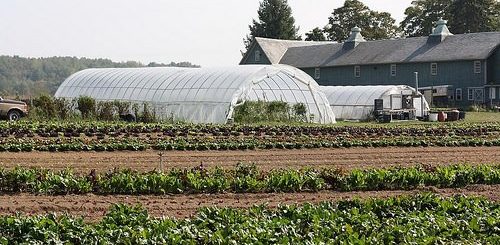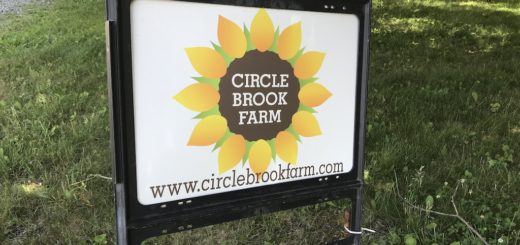Farm News – September 17, 2015

Hi Folks, we received little over 2 inches of rain last week, ending the latest dry spell. The fall crops are growing beautifully, and the recent seeding has germinated well. Unfortunately the cool nights and heavy dews along with this rain are causing a premature end to the tomato harvest. We have mostly cherry tomatoes left and a late planting that may produce a few slicers and some plum tomatoes. We will distribute these as supply permits over the next few weeks.
Last week’s surprise delivery of sweet corn came with a second surprise – a substantial infestation of corn earworm. I missed an opportunity to discuss in last week’s update and to give the members a heads up about finding a worm at the tip of the ears. The earworm is the most common problem in sweet corn production and is the reason that conventional farmers are using GMO seed. It is genetically to produce a protein toxic to the Lepidoptera family, moths and butterflies; the so-called “worm” is actually a caterpillar. I know that this distinction won’t mitigate the horror and disgust among the more squeamish. The truth is that the presence of the worm does not affect the quality of the corn in any way. The moths lay their eggs on the silks and the young caterpillars find their way to the tip. All that is necessary is to cut off the tip of the ear, either before or after shucking. I apologize for not advising the members of the potential for this situation.
There are some organic means of reducing these infestations but they require special equipment and are labor intensive. They involve using BT, or bacillus thuringensis, which produces the protein that GMO corn utilizes. Unfortunately the proliferation of this compound in the environment by the use of GMO-Bt seed is causing resistance to develop, resulting in the loss of a once important tool for organic farmers. It is also implicated in the collapse of Monarch butterfly population. If we ever plant sweet corn again we will try to do a better job in reducing the problem, but we will never be able to completely eliminate it. While I apologize for not warning of the issue, I can’t apologize for its existence. If we want to live in a natural world with vibrant ecosystems we are going to have to accept and tolerate some of the other creatures that make up these ecosystems (earworm moths are an important source of food for bats, as an example). If we want to eat food uncontaminated with chemicals we must learn to accept some small level of insect damage and presence.
The share for this week will be: Lettuce, beans, eggplant, peppers, salad turnips, arugula or broccoli raab, yellow onions, potatoes, and cherry tomatoes. We are in rotation with cauliflower so some groups may receive it this week.
The fruit share for this week will be: Peaches and hardy kiwi berries.
Enjoy! Farmer John

